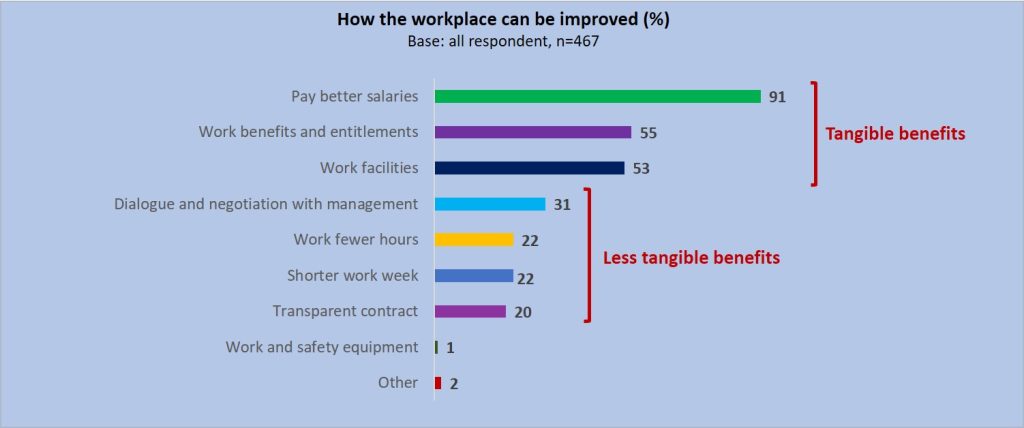A recent study by Rapid Asia on behalf of the ILO reveals that Thailand’s automotive industry shows strengths in the form of comparably high wages and widespread social protection coverage. However, the study confirms that gaps remain in other critical domains.
As the second-largest economy in South-East Asia, with an economy worth some US$632 billion, Thailand is reliant on its automotive manufacturing industry. The sector has been a powerhouse for the country, accounting for approximately 10 per cent of the country’s GDP. In 2022, Thailand was ASEAN’s largest producer of motor vehicles and the 10th largest in the world. Looking at the commercial vehicle production, the automotive sector ranked fourth globally. The structure of Thailand’s automotive sector is shown in Figure 1 below.

Figure 1: The structure of Thailand’s automotive sector
The study was published in early 2024 and has provided an in-depth analysis of the decent work situation within Thailand’s automotive manufacturing supply chain. The report, titled “Decent Work and Responsible Business Practices in Thailand’s Automotive Manufacturing Sector”, captures the current state of the sector, identifies future trends, and put forward practical recommendations.
The data collection process involved a survey and in-depth interviews with workers in the Thai automotive manufacturing supply chain representing Tier I, Tier II, and Tier II industries. Key informant interviews were also carried out with various stakeholders ranging from government agencies to academics, to obtain qualitative insights into current workforce-related and human rights practices, industry trends and future challenges.
The Auto Worker Index (AWI) was developed by Rapid Asia in collaboration with ILO experts, uses the ILO Decent Work Indicator Framework to assess work conditions towards enhanced human rights due diligence and responsible business practices in Thailand’s automotive industry.
The study has provided invaluable insights into decent work, responsible business conduct as well as challenges and opportunities in the automotive sector. The worker survey gave insights into how the workplace can be enhanced, shown in Figure 2 below.

Figure 2: How the workplace can be improved
Following are some of the key findings:
- As of August 2023, approximately 413,878 automotive production workers (Thai or non-Thai) were registered in the Thai Social Security System.
- Despite significant progress related to workers’ rights and conditions, there are still disparities that require focused attention which are particularly pronounced based on factors such as worker tiers, nationality, employment type, and gender.
- There are discrepancies in overtime compensation, particularly among different nationalities and genders which urgently need interventions.
- Despite some positive trends, there are some concerns regarding the dynamics of overtime work, the disparities faced by migrant workers in contract comprehension, and the relocation challenges which hint at areas of job insecurity.
- The are some disparities in earnings between Thai and migrant workers.
- The sector requires a more inclusive and comprehensive approach for a prosperous and equitable future.
- The study acknowledges that further investigation into decent working time is needed.
- The growing significance of the industry emphasizes the need for an inclusive and equitable approach to foster a prosperous, equitable, and inclusive work environment.
- Further research is needed to investigate labour relations, collective bargaining, discrimination, and unfavourable practices in small and medium-sized enterprises.
The report has shown that the Thai automotive manufacturing supply chain stands at a critical juncture. All stakeholders need to collaborate to address these disparities and strengthening freedom of association, collective bargaining, and social dialogue to pave the way for a more inclusive and sustainable future.
If you found this article useful, please remember to ‘Like’ and share on social media and hit the ‘Follow’ button never to miss an article.
To read more about “Decent Work and Responsible Business Practices in Thailand’s Automotive Manufacturing Sector”, please click here.
About the authors: Daniel Lindgren is the Founder of Rapid Asia Co., Ltd., a management consultancy firm based in Bangkok that specialises in evaluations for programs, projects, social marketing campaigns and other social development initiatives. Israr Ardiansyah is a writer working with Rapid Asia.

